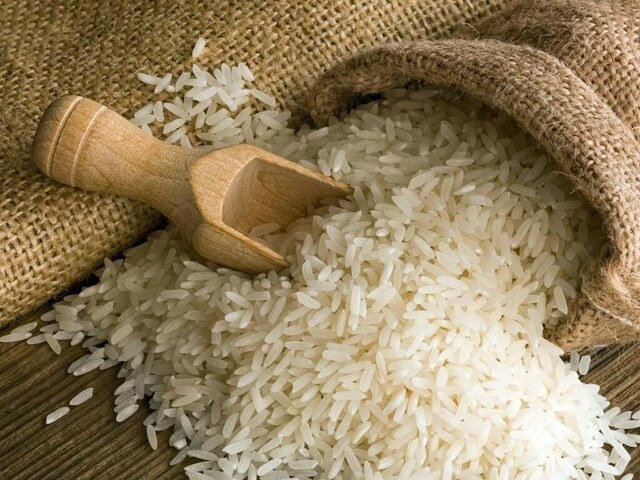Copyright brecorder

Pakistan’s rice export crisis has once again exposed deep-rooted weaknesses in the country’s agricultural governance. The sharp 28 per cent fall in rice exports during the first quarter of FY26 — from 991,146 tons last year to 712,797 tons — is more than a temporary fluctuation. It signals systemic regulatory and institutional failures that continue to undermine the sector’s competitiveness in global markets. The decline is particularly alarming in the basmati category, which plunged by 45.5 per cent, while non-basmati exports fell by 22.1 per cent as per news reports. Analysts and exporters cite fiscal constraints, tight financing, and an appreciating rupee as contributing factors, but the more enduring problem lies in the regulatory breakdown governing agricultural trade — a problem that has deepened since the promulgation of the National Agricultural and Food Safety Authority (NAFSA) Ordinance in May 2025. When the NAFSA framework was introduced, it was expected to unify and modernise Pakistan’s fragmented food safety and sanitary phytosanitary systems, bringing them in line with international frameworks such as the International Plant Protection Convention (IPPC), the Codex Alimentarius Commission, and the WTO’s Sanitary and Phytosanitary (SPS) Agreement. However, in practice, it created more confusion than clarity. Traditional technical institutions such as the Department of Plant Protection (DPP) — Pakistan’s recognised National Plant Protection Organisation (NPPO) under the IPPC — were weakened, disbanded and sidelined. Key regulatory positions are reportedly being filled with non-technical personnel, while new inspectors hired and inducted from other organisations, often lacked training, international certification, or even basic exposure to Codex and IPPC protocols. Instead of strengthening compliance, the transition apparently produced an inconsistent inspection regime and multiple layers of bureaucracy that exporters now describe as “obstruction by design.” The situation obviously worsened when, without any cogent technical or legal justification, the Federal Investigation Agency (FIA) was drawn into the country’s phytosanitary affairs. Its involvement — reportedly approved at the highest political level — led to harassment, suspension, and even imprisonment of senior and experienced technical officers and inspectors who had long served as Pakistan’s interface with international quarantine along with food safety system. Some of the most qualified and experienced phytosanitary experts were dismissed from service and kept in custody for months, not for corruption or malpractice, but apparently as part of a politically motivated campaign. Their removal not only damaged institutional morale but also deprived the regulatory system of technical competence at a critical time when export rejections were already increasing. This unprecedented politicisation of a scientific and trade-regulatory domain sent a chilling signal through the sector. Exporters who relied on these officers for timely certification and problem resolution were left stranded, while unqualified replacements struggled to maintain continuity. The resulting confusion further eroded Pakistan’s credibility in the eyes of importing countries. The European Union’s Rapid Alert System for Food and Feed (RASFF) subsequently reported a steady rise in interceptions of Pakistani rice due to insect infestation, pesticide residues exceeding Maximum Residue Limits (MRLs), and contamination with foreign materials. Each rejection has carried financial losses and long-term reputational damage. Globally, food safety and plant health are governed by the Codex Alimentarius and the IPPC, which together define how countries maintain safe and pest-free agricultural trade. As a signatory, Pakistan is obligated to ensure that its inspections, testing, and certification systems are transparent, science-based, and internationally accredited. Yet, the erosion of the DPP’s autonomy, the lack of ISO 17025-accredited laboratories, and the replacement of seasoned experts with administrators have left the system fragile and untrusted. The FIA’s intrusion — rather than addressing corruption or inefficiency — undermined professional integrity and drove out those who understood the technical requirements of global trade. The NAFSA Ordinance aimed to centralise oversight of food safety, animal quarantine and plant protection, but instead it has added layers of bureaucracy while diluting scientific authority. Overlapping mandates between NAFSA, DPP, AQD and provincial departments, absence of accredited laboratories, lack of a national training framework, and minimal dialogue with legitimate exporters have all created a regulatory vacuum. Compliant exporters are losing ground, while informal operators reportedly thrive amid weak enforcement and administrative confusion. Restoring Pakistan’s export performance demands a decisive return to science-based regulation. The DPP must be re-empowered as the country’s NPPO under the IPPC, with full authority over pest surveillance, quarantine, and certification. Laboratories across all levels need urgent upgrading to international standards, and inspectors should receive Codex- and IPPC-recognised training. A national capacity-building institute, supported by FAO and development partners, should be established to professionalise phytosanitary and food safety regulation. At the same time, political interference in technical domains must end; agencies such as the FIA have no legitimate role in scientific or trade-related compliance functions. Food safety and phytosanitary regulation are not administrative rituals — they are the backbone of agricultural trade. Pakistan’s rice, once a symbol of quality and excellence, is now losing ground not because of poor crops, but because of poor governance. Unless the framework of NAFSA or of any other organization for agri trade is wisely and technically amended to restore scientific autonomy, depoliticise regulation, and align national systems with international standards, Pakistan’s credibility in global food markets will continue to erode. The writer is a former Director General of the Department of Plant Protection (DPP), Karachi, and an agricultural policy analyst) Copyright Business Recorder, 2025



